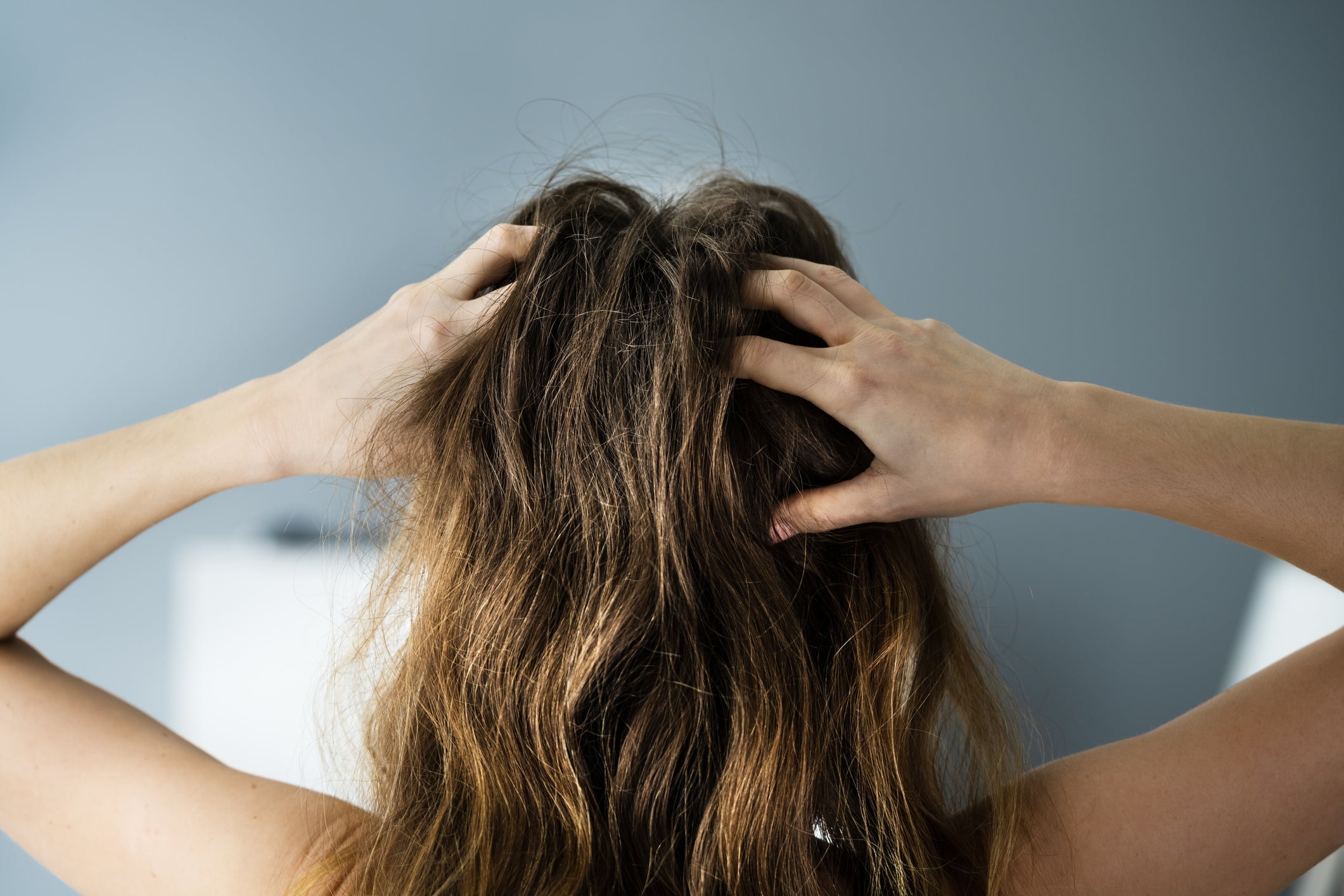Are you suddenly finding more strands in your hairbrush? Menopausal hair loss is a real, often overlooked symptom during this transitional phase of life. This blog will shed light on why hair loss happens during menopause and how you can naturally manage the condition.
Understanding the Science Behind Menopausal Hair Loss
Menopausal hair loss isn't just about getting older; it's primarily about hormonal changes. During menopause, estrogen and progesterone levels decline. These hormones once helped your hair grow faster and remain on your scalp for extended periods of time. Their decline means a shorter hair growth cycle and, unfortunately, thinning hair.

Debunking Common Myths About Hair Loss in Menopause
Myth 1: "It's Just Ageing"
Contrary to belief, menopausal hair loss is more linked to hormonal imbalances than simply the passage of time.
Myth 2: "There's Nothing You Can Do"
Incorrect. Although hair loss is a natural part of menopause, there are effective natural solutions for symptom management. Stick around to find out more.
Natural Solutions for Menopausal Hair Loss
Nutritional Tips for Hair Health
- Omega-3 Fatty Acids: Boost hair health with fish, flaxseeds, and walnuts
- Vitamin D: Sunlight exposure or fortified foods can help
- Biotin: Found in eggs, almonds, and whole grains
- Zinc: Oysters, beef, and pumpkin seeds are good sources
- Iron: Get your iron from lentils, chickpeas, and spinach
- Vitamin E: Sunflower seeds and almonds have it
- Vitamin A: Think carrots, sweet potatoes, and kale
- Selenium: Present in Brazil nuts and fish
- Vitamin C: Citrus fruits and bell peppers help collagen production
- Protein: Essential for hair growth, get it from lean meat, tofu, and legumes
Exercise for Hormonal Balance: Why It Matters
Exercise isn't just about weight loss; it's about maintaining hormonal balance, which can positively affect hair health. Activities like walking, yoga, and swimming are great for managing hormonal fluctuations because they promote healthy metabolic function.
Exercises Suitable for Hormonal Balance:
- A daily 30-minute brisk walk
- Yoga flows focusing on relaxation
- Swimming for low-impact, joint-friendly exercise
- Cycling promotes endorphin release for mental health and sleep
- Weight Lifting tones muscle and improves sex hormones
DIY Natural Hair Care Routine
Natural Hair Masks for Menopausal Hair Loss
Natural hair masks can nourish your scalp and hair directly, offering much-needed relief. Try these at home:
- Avocado and Honey: For nourishing and hydrating
- Banana and Olive Oil: To combat a dry, flaky scalp
- Coconut Milk and Aloe Vera: To soothe irritation and moisturise
- Extra Virgin Olive Oil: For hydrating and reducing dandruff

Choosing Safe Hair Care Products: Go Sulfate-Free
Opt for sulfate-free shampoos and conditioners to prevent further damage to your thinning hair. Fragrances and parfums in hair products can disrupt hormone pathways, so choose organic, chemical free products for healthier hair and skin.
Tips to Boost Self-Confidence
Consider Wigs for Instant Style
Switching to a wig can offer a significant confidence boost. Brands like Raquel Welch, Lusta Hair, and Ellen Wille are reputable and provide a wide range of styles. Expect to pay anywhere from $100 to $400, depending on material and quality. This can provide temporary comfort while underlying causes are rectified.
Other Aesthetic Options to Consider
Enhance other facial features to divert attention away from hair loss. Whether it's a bold eye makeup look or a pop of lip colour, minor changes can make a significant impact on how you feel. Consider hats, bands, scarves and experiment with new looks that fill you with confidence and style at the same time.
Conclusion
Menopausal hair loss affects many women, but you're definitely not alone. There are several natural ways to manage symptoms and regain your confidence.

Coming Soon: Your All-In-One Natural Solution
Stay tuned for the upcoming Nature's Help hair supplement, designed to target hair, skin, and energy, for every woman affected by hair loss. Every woman deserves to feel her best, naturally.
Written by Mona Hecke
Mona Hecke is a degree qualified Naturopath, nutrition specialist and health and wellness writer.
With over 20 years in the health industry, beginning with a focus on children and families, and a bestselling book ‘The Lunchbox Revolution’, Mona is now empowering women through education and conversation to take action and embrace change. Gut health, mindfulness, nutrition, hormones, and menopause are the topics that women want and need to know to create their healthy future.
Mona holds certifications in Lifestyle Coaching, Kinesiology, holistic herbal medicine, and nutrition.
A recognised leader in the health industry, Mona’s strong social media presence and passion for influencing change will continue to be a catalyst for health reform for the benefit of every Australian.






